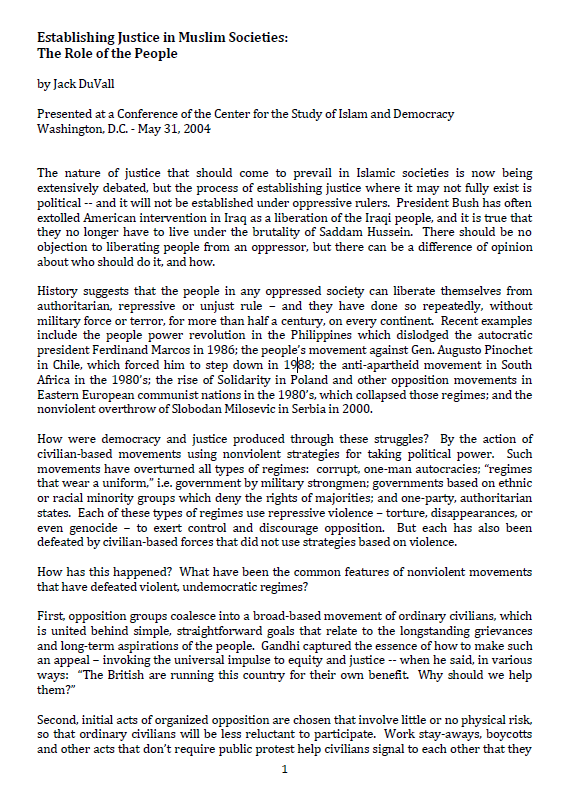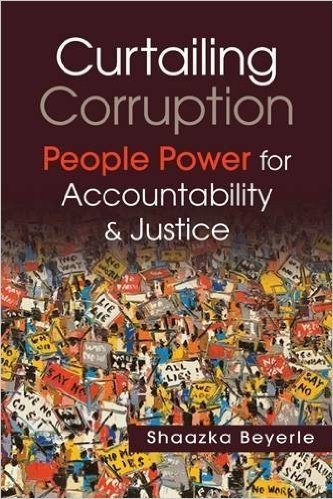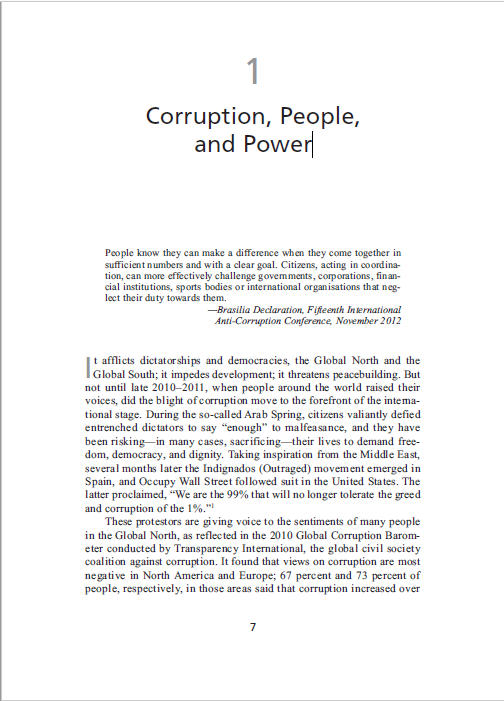
Establishing Justice in Muslim Societies: The Role of the People
Remarks delivered at the Center for the Study of Islam and Democracy, May 2004.
History suggests that the people in any oppressed society can liberate themselves from authoritarian, repressive or unjust rule – and they have done so repeatedly, without military force or terror, for more than half a century, on every continent. Recent examples include the people power revolution in the Philippines which dislodged the autocratic president Ferdinand Marcos in 1986; the people’s movement against Gen. Augusto Pinochet in Chile, which forced him to step down in 1988; the anti-apartheid movement in South Africa in the 1980’s; the rise of Solidarity in Poland and other opposition movements in Eastern European communist nations in the 1980’s, which collapsed those regimes; and the nonviolent overthrow of Slobodan Milosevic in Serbia in 2000.
How were democracy and justice produced through these struggles? By the action of civilian-based movements using nonviolent strategies for taking political power…
Remarks delivered at the Center for the Study of Islam and Democracy, May 2004
Washington, D.C. – May 31, 2004


